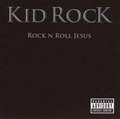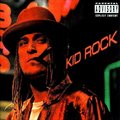Kid Rock 出生于 1971 年 1 月 17 日,在家中 4 个孩子中排行老三,父母叫他 Bobby。他的父亲 Bill Ritchie 和母亲 Susan 在密歇根州立大学念书时认识,因此两人都属于思想较为开通、喜欢寻欢作乐的那一代人,他们经常星期五在家里开派对。有时候人们喝醉了后会让小 Bobby 作表演,对口形假唱 Bob Seger 或 Jim Croce 的歌。他就这样听了很多 the Rolling Stones、the Beatles、Marshall Tucker 和 Johnny Cash 的歌。他试着学吉他,但学得并不怎么样。随后他又得到了一架鼓机和一些 DJ 唱机。到读高中时,他组织了一支霹雳舞表演队,经常参加婚礼演出,并获得了当地汉堡王快餐店的赞助。在演出时,他开始用说唱来介绍他的组员。“我们那时叫 the Furious Funkers,我从来不太会起名字。”他说,“当人们开始叫我 Kid Rock 时,我觉得很酷,所以就这样叫了下来。”
尽管父母对 Kid Rock 早年走上音乐道路颇有影响,但年轻时的他还是与家庭不合,尤其是和父亲。“年轻时我不喜欢和父亲待在一起。”他说:“当然现在我们俩还不错。过去不喜欢他并不是因为他打我,而主要是他无法将工作与生活区分开来,他总是让我在别人面前下不了台。”
Kid Rock 有一首名叫《My Oedipus Complex》的歌很好地反映了两人间的关系。“你从没爱过我,你从没有紧紧拥抱过我……你总是认为你的方式是最好的,而我总是给你惹麻烦……你能给我的只是钱,所以现在去你的,你不在乎你,我不恨你了,我自由了。”在歌曲结尾处,Kid Rock 更戏剧性地加入了一段独白,他模仿父亲向自己的儿子道歉,解释他是如何在贫困中长大、白手起家,他一直爱自己的儿子、希望儿子不要厌恶他。
这首歌首次在 1996 年发行,他的父亲听后当然很不高兴。更让他不快的是,这首歌还将出现在 Kid Rock 的新专辑《The History of Rock》中。这张新专辑中的歌主要选自 Kid Rock 的第二和第三张专辑。有些歌被原封不动地放进了新专辑,有些歌如《My Oedipus Complex》则是重新录制了一遍。但只是更新了音乐部分,Kid Rock 仍旧未改动歌词。“这就是当初我所感受的,而这些歌就是完完全全地反映了我当时的感受。”
“每个人都知道我的名字”Kid Rock 在推出成名之作《Devil Without a Cause》之前已发行了 3 张唱片。首张专辑《Grits Sandwiches for Breakfast》于 1990 年由 Jive 唱片公司发行。那时的他还是个满嘴脏话、剃了个小平头的白人说唱乐手。不幸的是,专辑的发行正赶上了当时红得发紫的另一白人说唱乐手 Vanilla Ice 的专辑推出,Kid Rock 的专辑一下子被人盖了下去。于是他留起了长发,开始了一段最为混乱的日子。在转签到一家独立唱片公司后,Kid Rock 发行了第二专辑《The Polyfuze Method》。到出版第三专辑《Early Mornin' Stoned Pimp》时,Kid Rock 不得不自己成立个唱片公司 Top Dog 来出版这张唱片。
他的第二张和第三张专辑虽然在当地小获成功,但与之后超白金销量的《Devil Without a Cause》显然不能同日而语。有趣的是在录制这张专辑的时候,Kid Rock 似乎已经预感到了自己将会取得巨大成功,因为专辑中的很多歌曲讲的都是成功所带来的压力,最具代表性的便是那首《Only God Knows Why》。这首歌是 Kid Rock 和乐队成员 Kracker 和 Jason 在监狱中创作的。当时他们和朋友在酒吧庆祝乐队与 Atlantic 唱片公司签约,但最终庆祝演变成了酒吧斗殴。在监狱中 Kid Rock 写下了这样的歌词:“每个人都知道我的名字,他们大声叫喊着我的名字,很难走到人群中去,我想那是成功必须付出的代价。”
“当我写这首歌的时候,我并不那么出名,还不至于不能走到人群中去。”Kid Rock 回想说:“没有人知道我到底是谁,但我就是预感到了我将会获得巨大成功。我的预感还是挺准的!”他笑了起来。“一年前我觉得我长得还很丑,但在卖掉了 700 万张唱片后,我成了一个性感的家伙。”每次演出后总有一大帮女孩子等着与他合影,与他套近乎。一开始 Kid Rock 还很热衷,但现在不了,他有了个做模特兼演员的女朋友 James King。两年前他们首次在一档 MTV 台的节目中相识,只不过当时两人都各自有自己的朋友。在今年的葛莱美颁奖晚会上,两人又见面了,这时他的脑中有了个想法:“这就象你想写张纸条给某人——我喜欢你,你喜欢我吗?选择是或否。”回到密歇根的家中,Kid Rock 发现自己还在想着她。接下去的事 Kid Rock 不想公开,但有一点是肯定的,James 还回了纸条并且选择了“是”。随后人们发现两人一同出现在了底特律。
“除了部分词汇要考虑押韵外,这首歌 99% 的内容都是真实的。”Kid Rock 说。但也有些人在听后表示有点怀疑——如果真是这样的话,那他一定是个非常好的、有责任心的父亲,这似乎与大部分的摇滚乐手的形象大相径庭。“他们并不知道我是怎么生活的、在家里是怎么样教育我的儿子的。他们不能想象既当一个摇滚乐手在外面风光,又在家里养好孩子。他们不懂得其中的平衡,不知道有人能掌握这种平衡,并正这样生活着。”
Kid Rock 的这种平衡感不仅表现在生活中,也同样体现在他的音乐中——他恰到好处地平衡了说唱和重金属在音乐中的分量,这也许就是他的成功之道吧!
One of the unlikeliest success stories in rock at the turn of the millennium, Detroit rap-rocker Kid Rock shot to superstardom with his fourth full-length album, 1998's Devil Without a Cause. What made it so shocking was that Rock had recorded his first demo a full decade before, been booted off major label Jive following his Beastie Boys-ish 1990 debut, Grits Sandwiches for Breakfast, and toiled for most of the decade in obscurity, releasing albums to a small, devoted, mostly local fan base while earning his fair share of ridicule around his home state. Nevertheless, Rock persevered, and by the time rap-metal had begun to attract a substantial audience, he had perfected the outlandish, over-the-top white-trash persona that gave Devil Without a Cause such a distinctive personality and made it such an infectious party record.
Bob "Kid Rock" Ritchie (born Robert James Ritchie, January 17, 1971) grew up in Romeo, MI, a small rural town north of the Detroit metro area. Finding small-town life stiflingly dull, Ritchie immersed himself in rap music, learned to breakdance, and began making the talent-show rounds in Detroit. Inspired by the Beastie Boys' Licensed to Ill — white performers fusing rap and hard guitar rock — Kid Rock recorded his first demos in 1988, and eventually scored an opening slot at a Boogie Down Productions gig. That performance, in turn, led to a contract with Jive Records, which issued Kid Rock's debut album, Grits Sandwiches for Breakfast, in 1990. Produced by Kid Rock, Too Short, and D-Nice, the album was heavily derivative of Licensed to Ill. Rock briefly became notorious when a New York college radio station aired the album's profanity-laced ode to oral sex, "Yodelin' in the Valley," and was fined over $20,000 (a judgment later rescinded). However, despite a tour with Too Short and Ice Cube, Jive didn't see much of a future for Kid Rock and dropped him from their roster.
Moving to Brooklyn, Rock hooked up with the small Continuum label, and moved his brand of rap further into hard rock with The Polyfuze Method, released in 1993. Reviews were mixed, with some critics praising the record's humor and eclecticism while others dismissed it as awkward and forced. The EP Fire It Up followed in 1994, appearing on Rock's own Top Dog imprint (which was still distributed by Continuum). Rock eventually returned to the Detroit area and began work on another album; recorded on a shoestring budget, Early Mornin' Stoned Pimp was released in 1996. Although sometimes forced to sell bootleg dubs of his own records to pay the rent, Rock set about forming a full-fledged backing band, which he dubbed Twisted Brown Trucker. While its membership fluctuated early on, rapper Joe C. (born Joseph Calleja) was one of the first to join; a longtime fan and frequent concert attendee, Calleja caught Rock's eye in 1994, partly because of his diminutive stature (due to a digestive condition known as celiac disease, which required both dialysis and extensive medication) and partly because of his encyclopedic knowledge of Rock's song lyrics. The rest of the lineup settled around mostly Detroit-area musicians: guitarists Kenny Olson and Jason Krause, keyboardist Jimmy Bones (born Jimmy Trombly, he handles the basslines himself), drummer Stefanie Eulinberg, DJ/turntablist Uncle Kracker (born Matt Shafer, who had been with Rock since the early '90s), and backing vocalists Misty Love and Shirley Hayden.
As rap-metal acts like Korn, Limp Bizkit, and Rage Against the Machine began to dominate the hard rock landscape, Atlantic Records decided to take a chance on signing Rock. Devil Without a Cause didn't do much upon its initial release in August 1998, but a big promotional push from the label and MTV helped make the album's second single and video, "Bawitdaba," a nationwide smash. The follow-up, "Cowboy," achieved similar success, and suddenly, after a decade of trying, Kid Rock was a superstar with a Top Five, seven-times-platinum album and a gig at Woodstock '99. While pondering how to follow up Devil, Rock acquired the rights to his indie label recordings and remixed or re-recorded the best material for The History of Rock, which was released in the summer of 2000 and featured some new songs as well. Sadly, after being forced to take a break from touring a year earlier by his medical difficulties, Joe C. passed away in his sleep on November 16, 2000.
Even with a tragedy like this in his life, Rock continued work on his follow-up to Devil Without a Cause. The media focused more on his relationship with actress Pamela Anderson than his musical career, which many magazines were beginning to ridicule. His DJ, Uncle Kracker, had a successful solo career during the spring and summer of 2001, leaving Rock without one of his most frequent collaborators. Still, by the winter of that year he had completed work on Cocky and had released "Forever" to success on rock radio. In fall 2003, Kid Rock returned with a self-titled effort. A cover of Bad Company's "Feel Like Makin' Love" marked the first single. The cover art to his 2006 live album, Live Trucker, paid tribute to Bob Seger's Live Bullet. Just a year later the studio record Rock N Roll Jesus came out.








